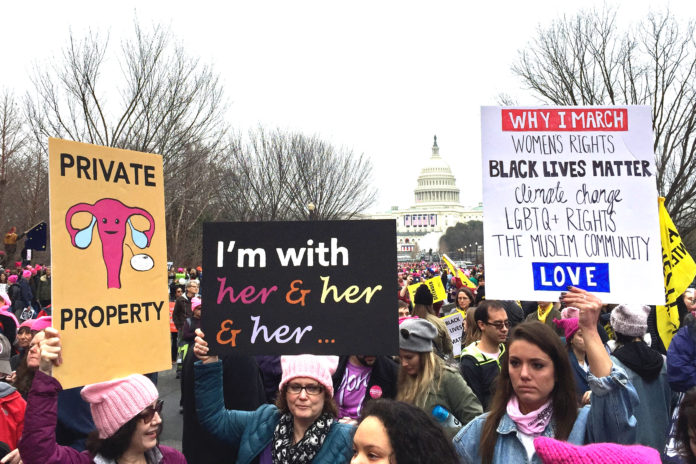
Reproductive rights are one of the most controversial issues at the moment. In 1973, the U.S. Supreme Court’s Roe v. Wade decision was a landmark of feminist movement and women’s rights, for which the Constitution conferred abortion. On June 24, 2022, the Dobbs. v. Jackson decision was enacted, which overturned the constitutional right of abortion.
With this context, the Women, Gender, and Sexuality Studies (WGSS) department organized an educational series to share information about reproductive rights. The series was initiated with a speaker event “Historicizing Reproductive Rights and the Impact of Dobbs” on Thursday Oct. 27. The event featured Professors Angela Castañeda (Ph.D.) and Sarah Rowley (Ph.D.) from DePauw, and Dr. Hillary Melchiors from Doula Group of Evansville and DONA International.
According to them, in history, abortion was previously criminalized at any stage, and it soon raised the public moral issue of pursuing activism instead of having babies to contribute to the nation. Hence, illegal abortions were unsafe not due to the practitioners but due to the law. Abortion was also discussed as a practice that was tied to the white supremacy with the influence of Darwinism, a theory of biological evolution and natural selection that all species develop and inherit competitive characteristics to survive and reproduce.
Regarding reproductive services, Dr. Melchiors shared that currently, one in four counties in Indiana do not provide enough health services for women. As a result, those are regarded as maternity care deserts and include Fayette, Greene, La Porte, Orange, and more. All three professors concluded that although Dobbs made a difference, where one lives can be paramount when it comes to having access to abortion services. Indiana had this problem previously, and in many areas, people still did not have access to abortion.
The speakers said that the most vulnerable people were low-income people and people of color who could not afford and could not access abortion services. It resulted in medical damage, infection, and even death. The lack of access to abortion has been a consistent problem for a while and women should have the right to control her abortion in order to control her life, according to the speakers.
In the end, the speakers recommended resources to further explore this issue, including “When Abortion Was A Crime” by Leslie Reagan, “Choice and Coercion: Birth Control, Sterilization, and Abortion in Public Health and Welfare” by Joanna Schoen, and more.
